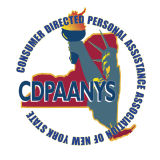Caring for a client with dementia often involves a series of steps that can be broken down into what we have categorized as “The Three E”s”. To better understand and connect with your client, you must first empower, then encourage, and finally engage with them. Building trust can take time but with the proper tools, it can be done in a way that will inspire and provide more meaningful days for both you and your client.
In this post, we are going to cover the topic of dementia and three helpful approaches that you, as caregivers, can do to help support your clients. The first and most important thing we would like you to understand is that dementia, Alzheimer’s disease, and other cognitive impairments are caused by abnormal changes happening inside the brain.
Many of these changes and symptoms that we notice in our clients are things that they cannot control. Some of the symptoms that you may see or witness, such as memory loss, confusion, disorientation, depression, feelings of anxiety, agitation, aggression, and apathy, are symptoms and challenges for our clients as well as challenges for us as caregivers. It’s important to recognize that many of these times, they cannot control what’s happening inside their body and their brain so we shouldn’t take it personally. However, there are things that we can do to help support them and build trust and connections that will create more purposeful days.
Empower
The first thing we can do to support our clients is to empower them. One of the hardest parts about getting older and aging, especially aging with dementia, is losing our independence and not being able to do some of the things that we used to be able to do. It’s important as caregivers that we recognize this and that we do things with our clients, not just for our clients. We should allow them to do what they can, for as long as they can, and then be there to help support them as needed. It’s also important to stay present in their reality, even if their reality is inaccurate. We can only do that by entering into their reality. Go with the flow. Be beside them. We can do this by actively listening, paying attention to what they’re saying and their body language, and observing the emotion behind their words and actions.
Encourage
We can support our clients by encouraging them. Building connections and trust takes time. As caregivers and care partners, we often meet resistance and experience challenging situations, especially as dementia progresses. It’s important to note that if you meet resistance, you should follow these steps:
- Wait five minutes
- Take a step back
- Reapproach and then try that at least three more times
Our words and our actions matter so try to avoid using the words, “no”, or disagreeing or “quizzing” your client. This can often cause a person to feel and get defensive. It’s best to offer your support. Try a friendly invitation or asking for permission. Remember, your patience will only provide them with the comfort and reassurance that they need.
The second thing we can do to get more yeses and nos is to offer choice. When you offer a person a choice, you allow them the opportunity to make their own decisions, and to be a part of their care and what’s going to happen next. For example, you can offer a person a choice of “either, or…”
- “Would you like something hot or cold to drink?”
- “Would you prefer to take a shower before dinner, or after dinner?”
- “Would you like to go for a stroll to the park this afternoon, or would you prefer to keep working on the word puzzle that we started together yesterday?”
I encourage you to try offering your clients a choice in many different ways throughout the day. You’ll start to notice a difference, and that will make a difference for them, as well as for you.
Engage
To support our clients is to engage our clients. We want to create purposeful days with things to look forward to. We should try to fill time in between meals with meaningful activities. It’s important to create routine and structure in the lives of our friends living with dementia. I want you to take some time to get to know:
- Who they are
- Where they’re from
- What they did for a living
- What kind of music they like
- What foods they prefer
- What are some of their interests and passions
These are the things that you will want to know to create some meaningful activities for them. Keep in mind that having structured, physical activity at least once a day is important. Here are some examples:
- Going for walks
- Doing exercises for range of motion
- Keeping the brain and the body engaged creatively
- Doing something with your hands
- Cooking together in the kitchen
- Playing a game of cards
- Folding laundry together
- Painting
It’s also important to keep them creatively stimulated and ensure that they are connected, socially and emotionally, to friends and family, and things that they love. This will help inspire you, and them, to have more joyful days filled with positive emotions.
If you have any questions or concerns about your client, please contact your nearest True Care office. If you’d like further information on dementia, please click on the video below. Thank you for taking the time to read our tips on how to empower, encourage, and engage your client.









